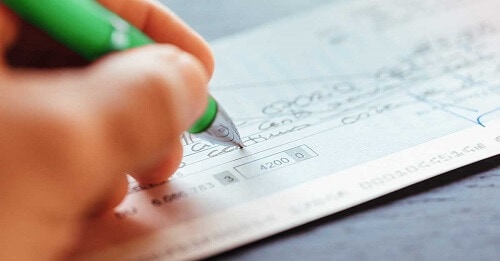Personal Checking Information for Smart Financial Decisions

How to Write a Check
Filling out a check for the first time, or for the first time in a while? You might have questions, like where to sign a check and how to write a check with cents. Check out our quick step-by-step guide.
How to Check Your Routing Number
Have you ever wondered how and where you can find your routing number? We detail four ways, with and without a check, to find your routing number.
How to Cash a Check without a Bank Account or ID
Have a paper check to cash, but don't have a bank account? No worries, you can still cash a check without a bank account and you can do this by cashing it at the issuing bank or a check cashing store.
How to Sign/Endorse a Check Over to Someone Else
You have a check payable to you, but you find yourself in a situation where you are unable to deposit the check, or you don’t want to cash it yourself. Now what? Follow these steps on the process.
